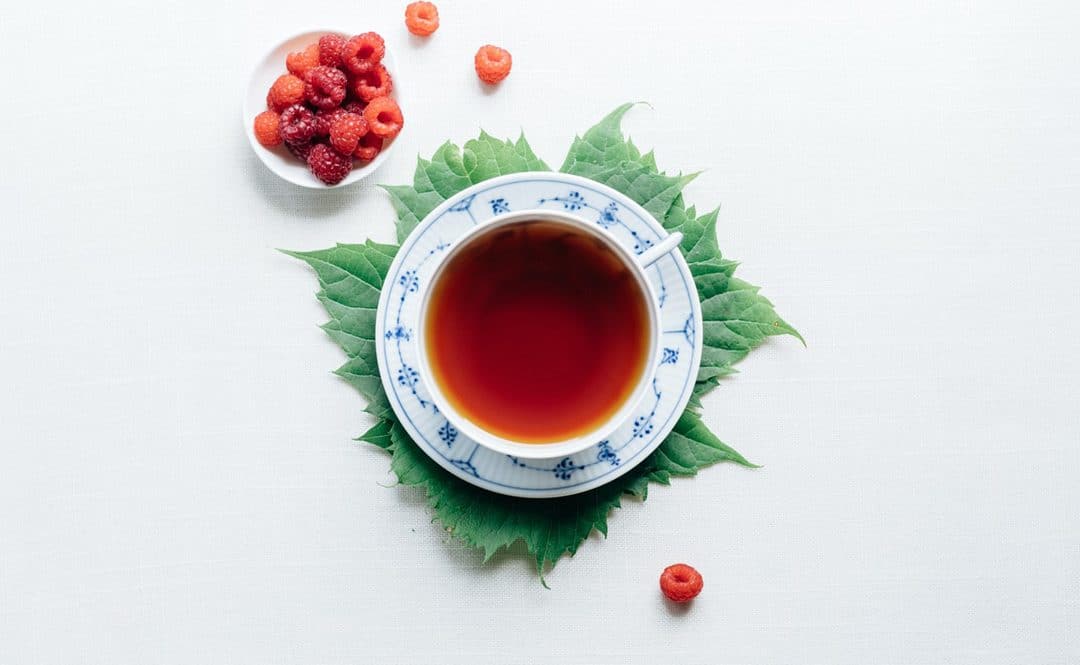Raspberries are probably one of the healthiest fruits on our earth. We will tell you how to make raspberry syrup without sugar, why raspberry jam is better than strawberry jam and why cancer cells don’t like raspberries.
Overview
The raspberry, an ancient fruit and medicinal plant
The raspberry (Rubus idaeus) is a member of the rose family like many other fruit plants (cherry, strawberry, apple, pear). There are several genera in this family. The genus Rosa describes the actual roses (cultivated and wild roses). The genus Rubus – which comprises several thousand species – includes, among others, the raspberry and the blackberry.
The Eurasian wild raspberry can still be found today in mountainous areas – mostly in forest clearings and on the edges of forests – and is known for its particularly aromatic fruits. According to archaeological findings, the wild raspberry was already one of the most important fruit plants in the Stone Age and has always been highly valued as a medicinal plant.
The wild raspberry was cultivated in the Middle Ages, and the cultivated raspberries were initially cultivated and grown in monastery gardens in particular. Since then, countless varieties have developed, with raspberries crossed from all over the world.
There are countless raspberry varieties
In addition to the Eurasian wild raspberry, there are various raspberry species in Asia and North America, which are related to each other, but whose fruits can differ considerably in appearance and taste.
These include, for example, the Japanese strawberry-raspberry, the Chinese climbing raspberry and plants native to North America such as the splendid raspberry, the cinnamon-raspberry and the black raspberry (Rubus occidentalis). The black raspberry has also attracted attention in Europe because cancer researchers have recognized its great potential in its dark fruits.
Not all raspberries are red
In our regions it is more or less taken for granted that the raspberry is red. But there are both wild and cultivated plants that bear yellow, orange or black fruit. Many varieties have been created by crossing Eurasian raspberries with black-fruited raspberries such as Rubus occidentalis, and as a result their fruits are black in colour.
Nevertheless, almost only red raspberries are offered for sale in this country. In the garden plant trade, however, there are countless varieties of different colours available, which can be grown by passionate hobby gardeners.
The raspberry is not a berry
The fruits colloquially called berries are actually not berries at all, but fruits of collection like also the strawberries or the blackberries. If you take a closer look at the raspberries, you will see that they consist of many small stone fruits that stick together. Each of these individual fruits contains a kernel, which also plays an important role in the raspberries’ health value.
Incidentally, the real berries include fruit species that you probably wouldn’t suspect. Namely bananas, citrus fruits, dates, kiwis, avocados and melons.
The nutritional values of raspberries
Just like almost any other fruit, the raspberry is rich in water, but contains very little sugar and even less fat than many other fruits. The raspberry also scores points in terms of the fibre that is mainly found in the seeds: 100 g of the fruit is enough to cover 13 percent of your fibre requirements.
Nutritional values per 100 g raspberries
Water – 84.3 g
Fibre – 6.7 g (1.4 g water-soluble and 5.3 g water-insoluble fibre)
Carbohydrates – 4.8 g (sugar: 1.8 g glucose and 2 g fructose)
Protein – 1.3 g
Fat – 0.3 g
Calorie content of raspberries
Raspberries are low in calories and provide only 34 kcal per 100 g of fresh fruit. For comparison: cherries have about twice as many calories, while bananas have 95 kcal. Fruit is therefore a much better snack than milk chocolate (536 kcal) or chips (539 kcal).
Vitamins in raspberries
The raspberry is certainly not a vitamin bomb and in this respect it cannot compete with other fruits such as sea buckthorn berries or plums. Nevertheless, with 200 g of raspberries you can still meet the recommended daily allowance of vitamin C by 50 percent and vitamin E by 14 percent. These two antioxidants boost the immune system, counteract inflammation and reduce the risk of cancer.
Minerals in raspberries
Although raspberries contain many minerals, their content is not very high. What stands out most is the content of copper, manganese, magnesium and iron. Their copper and manganese requirements can be met by 22 percent with 200 g raspberries.
Raspberries contain many minerals and trace elements.
Raspberries are healthy for intestines and digestion
Raspberries are good for digestion and can help with constipation. The fruit acids partly contribute to this, but primarily the dietary fibres. Both are important for the metabolism and help to ensure that the food can be digested optimally.
Raspberries are among the fruits with the highest fibre content. This is due to the small seeds that are directly in the fruit and are therefore eaten with it. Raspberries contain water-soluble and above all water-insoluble fiber such as lignin and cellulose. These increase the stool volume, which stimulates intestinal movement and accelerates the transport of food residues and their excretion.
Apart from regulating digestive activity, raspberries also increase the feeling of satiety, which reduces the risk of obesity. A major international study in 2017 showed that high fibre intake reduces the risk of diabetes, hypertension, cardiovascular disease and colon cancer.
A French study with more than 100,000 test persons in 2020 showed that in particular the intake of insoluble and soluble dietary fiber from fruits reduces the risk of chronic diseases and is associated with lower mortality. They therefore called for nutrition policy in the public health sector to finally place more emphasis on dietary fibre.
If you like living a healthy life, you should read our Coconut Oil Facts – In Search of The Truth About Coconut Oil article.
If you are looking for a diet program, here is our list:
The Smoothie Diet: 21 Day Rapid Weight Loss Program
Red Tea Detox – New Weight Loss For 2020!
Mediterranean Diet – The Official Diet Plan










